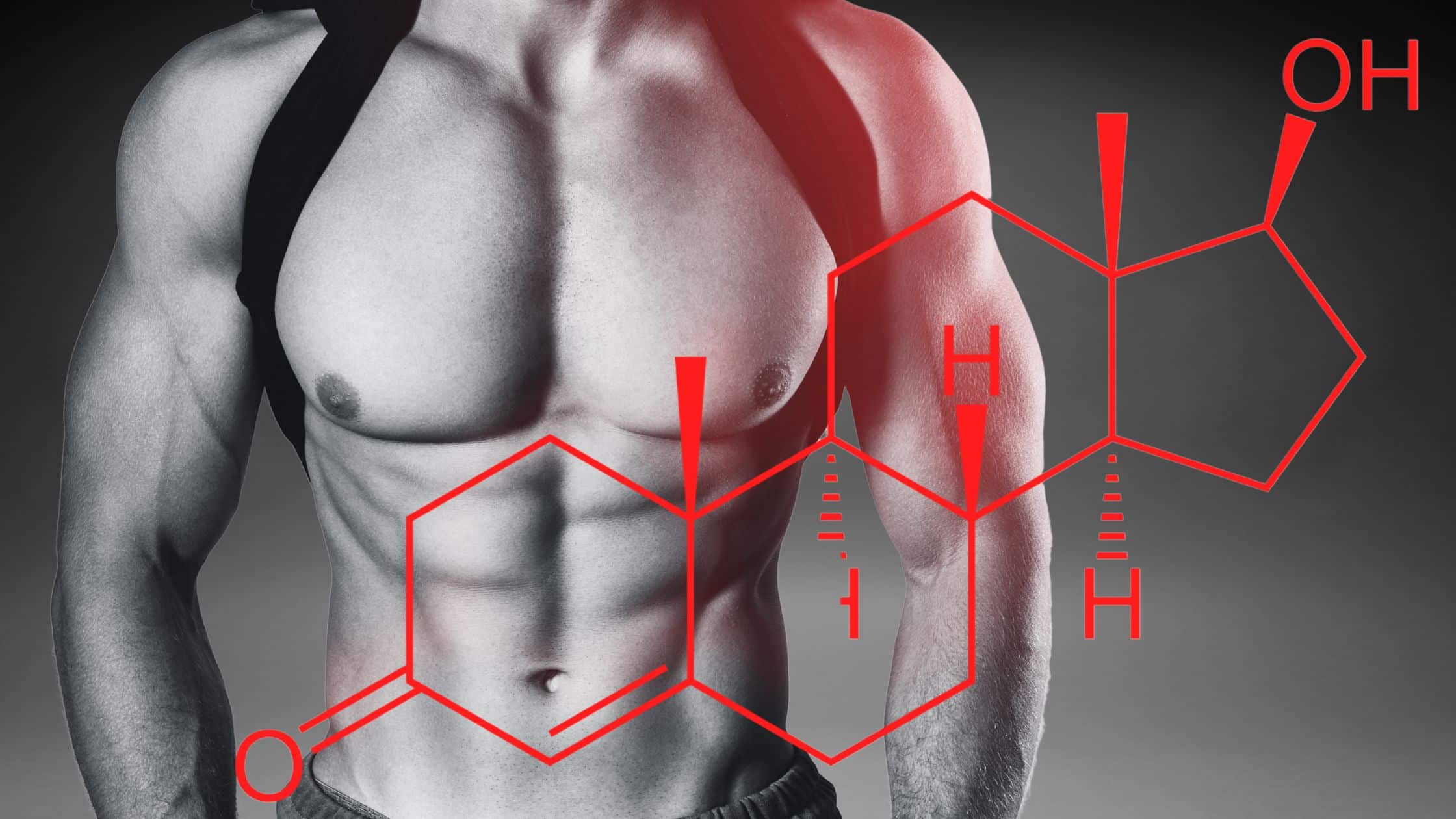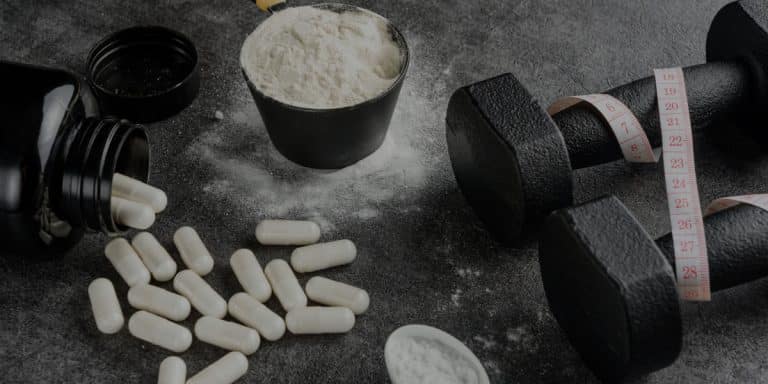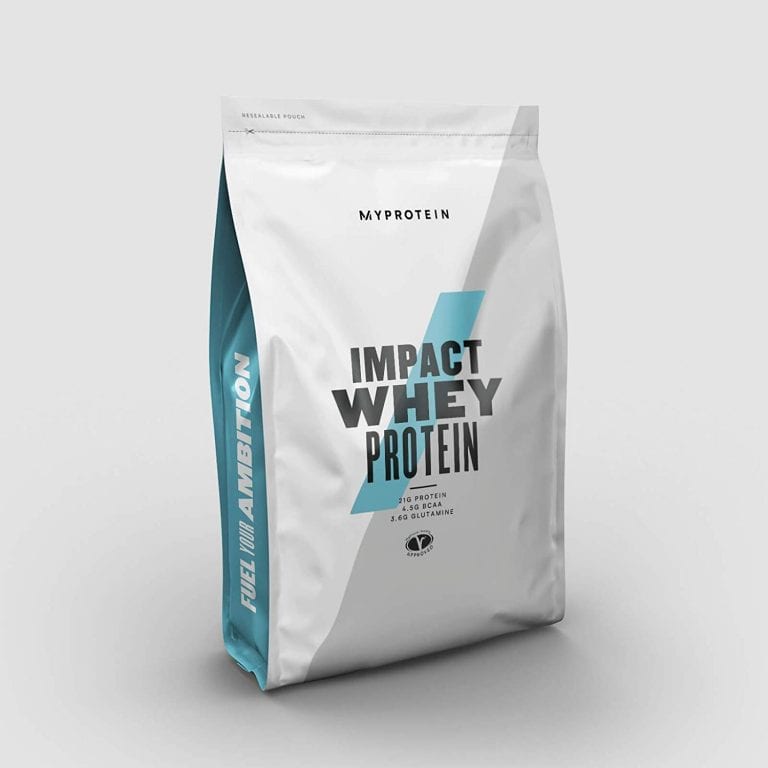Does Ashwagandha Increase Testosterone?
Testosterone is a key player for many of us, improving muscle mass, mood, libido and more. So how does ashwagandha increase testosterone? And if it does, how? Researcher Ben Hardman explains all…
Ashwagandha and testosterone. One’s a plant and the other is the most important male hormone in the human body.
Is it possible that ashwagandha can really boost testosterone levels?
Absolutely, it’s possible. Plants of all kinds can have a highly influential impact on our body’s internal mechanisms, hormone levels, and general feeling of wellbeing. Ashwagandha is no different in this respect.
The current science around ashwagandha and testosterone tells us there’s a link between the two that needs exploring further. The good news is that this is a positive link that could have benefits on both general health and testosterone levels.
Let’s explain all you need to know on the relationship between ashwagandha and testosterone.
Quick Overview On Ashwagandha
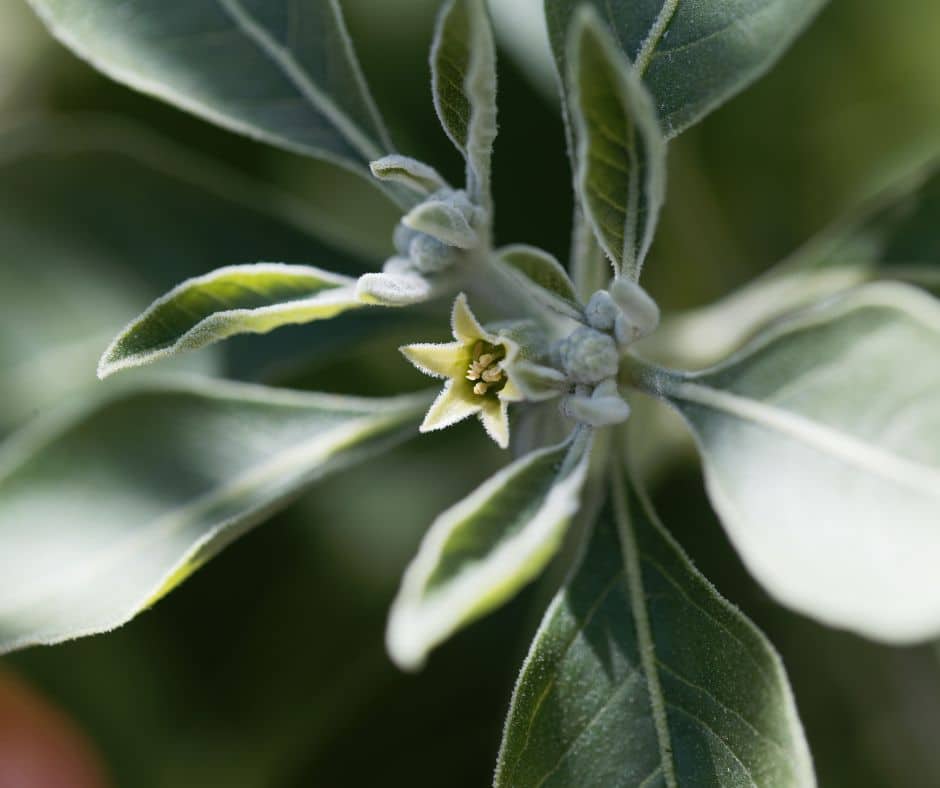
Ashwagandha, or Withania somnifera, is a short evergreen shrub with small bell-shaped flowers and a bright orange-red fruit. It’s a plant native to India, the Middle East and parts of Africa. The Sanskrit-based name actually comes from the fact that it smells like a horse. Nice.
As pretty as the upper part of the plant may be, we’re interested specifically in the roots. It’s here in the roots of the ashwagandha plant where the main benefits to humans lie.
Ashwagandha has been used in Ayurveda – or traditional Indian medicine – for thousands of years. It might be fairly new to you and me, but not for followers of this ancient practice.
In Ayurveda, the ashwagandha plant has been used to promote ‘youthful vigour’. Getting into the specifics, ashwagandha has been used as a remedy for all sorts – from being a stress-buster and sleep aid to acting as a tonic and aphrodisiac.
It’s also known as an antioxidant, painkiller and anti-inflammatory, and can even be used as an antidote to snake venom and scorpion stings.
A versatile and useful root indeed.
Quick Overview On Testosterone
Testosterone is a naturally occurring hormone. It’s produced in both males and females, but is known to be instrumental in the development and maintenance of male characteristics. These hormones are known as androgens, which impact sexual health, physical attributes and behaviour.
Production of testosterone is largely controlled by the hypothalamus region of the brain, which sends messages down to the testes.
Testosterone levels can vary greatly from person to person depending on genetic factors, age, and natural daily rhythms. There are some environmental factors that influence testosterone levels too, including diet, stress levels, exercise intensity and sleep.
Given the important role that testosterone plays in male health, it’s natural to explore the various ways in which you can maintain optimal levels of this hormone.
This leads to the key question here – can ashwagandha have a positive effect on testosterone levels?
What The Science Says On Ashwagandha And Testosterone
There are a number of intriguing studies examining the relationship between ashwagandha and testosterone levels in men.
There have been a handful of randomised, placebo-controlled, double-blind studies (where neither the participant nor scientist know who’s getting the ingredient or placebo). These give us the best indication of the impact that ashwagandha can have on testosterone levels.
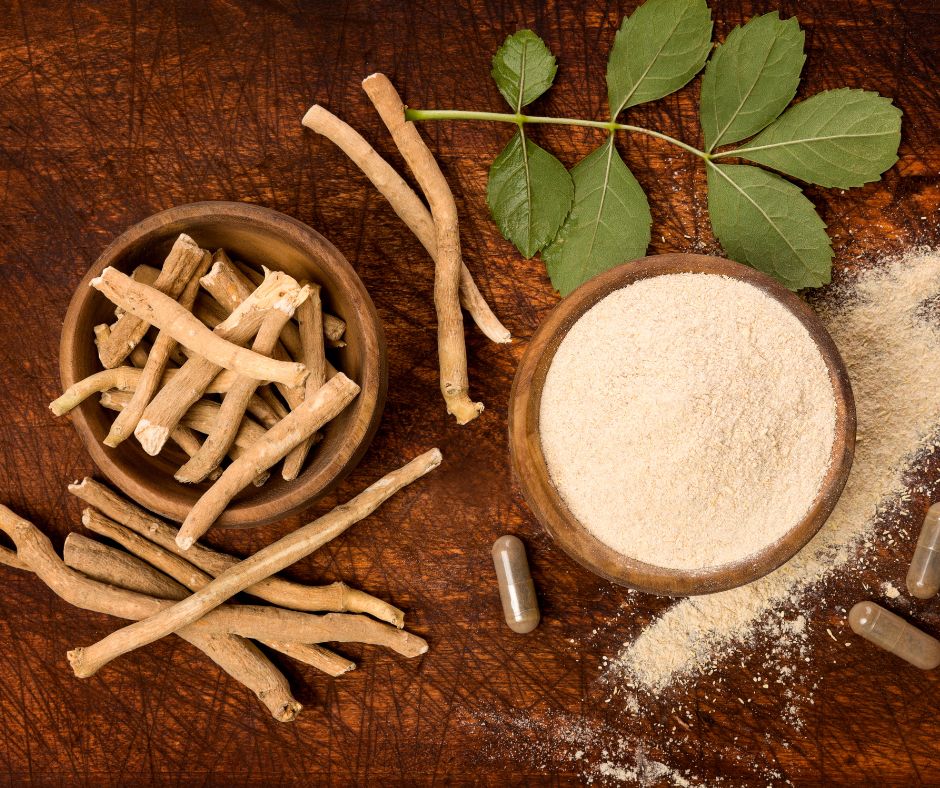
One study of 57 young men (with an average age of 28) observed a testosterone increase of 15% over an 8-week period. The treatment group here had 600mg of ashwagandha root extract whilst going through a new regime of resistance training.
Although the resistance training is likely to have an impact on testosterone levels too, the trial compared changes of the treatment group versus the control group (not taking ashwagandha). The difference in strength gains and testosterone levels were significant. Very interesting.
Another interesting study on ageing, overweight males also found a positive association of ashwagandha on testosterone. An 8-week course of ashwagandha extract, preceded by an 8-week course of a placebo, found significantly higher testosterone levels of 16%. The study also looked at the opposite protocol (ashwagandha supplementation followed by placebo) and witnessed an 11% drop in testosterone.
A different study on 46 infertile men (average age of 34) looked at supplementing with 675mg of ashwagandha extract over a 90-day period. The result was a significant increase in testosterone concentrations of 17% compared to the placebo group (3.8% increase).
A 2022 study focused on Asian-Indian males between the ages of 21 and 45 years old who reported low sexual desire. After consuming 600mg of ashwagandha daily for 8 weeks, average testosterone levels increased from 402 ng/dl to 474 ng/dl. Compare this to the control group who went from 415 ng/dl to 421 ng/dl. Again, a significant result in favour of ashwagandha.
It’s not all plane-sailing for ashwagandha though. One study didn’t find a significant difference in testosterone levels in 60 stressed but healthy men and women after consuming 240mg of ashwagandha daily for 60 days.
Despite this, the evidence is certainly pointing to a positive association between ashwagandha supplementation and testosterone levels.
How Might Ashwagandha Improve Testosterone Levels?
Ok, things are looking good. It seems like ashwagandha provides a boost for male testosterone levels. But how does it do this exactly?
The precise mechanisms are unknown, but we can be clear in the fact that ashwagandha doesn’t directly boost testosterone.
Instead, it seems to help testosterone levels by counteracting other factors that drag testosterone down. By preventing or alleviating testosterone-dampening mechanisms, ashwagandha gives testosterone the ability to boom. I’ll take this.
Though more research is needed on this, there seems to be two main factors at play.
Stress and Anxiety Alleviation
Ashwagandha has fantastic stress-tackling properties. The Ayurvedic community have known this for centuries.
The body’s main stress hormone is cortisol. Cortisol can be good in small, short-lived doses – in fact it’s integral for us – but we certainly don’t want elevated cortisol levels over the long term.
Studies have shown that ashwagandha supplementation can reduce the amount of cortisol being produced by the body. One study noted a 23% reduction in morning cortisol with ashwagandha intake. A study on stressed individuals in particular found an inverse relationship between ashwagandha and lower stress levels.
The same is true for anxiety levels too, with studies finding statistically significant effects of ashwagandha on reducing anxious feelings.
It’s thought the ashwagandha plant extract can help relieve stress and anxiety by moderating the production at the hypothalamus-pituitary-adrenal axis, which is key for how your body reacts to stress.
This is important news for testosterone as there’s a direct relationship with cortisol. It’s an inverse relationship. The higher the stress, the lower the testosterone. If we want higher T levels, we need to let our bodies relax more.
It’s important to note that some studies didn’t find significant differences to cortisol levels with ashwagandha use. It’s an evolving research area with more studies needed.
Antioxidant Properties
Another pathway through which ashwagandha may promote testosterone levels is via its antioxidant mechanisms.
Oxidative stress has a negative effect on testosterone. Numerous studies, including human trials, have backed up this inverse relationship.
For those who aren’t sure, oxidative stress is caused by free radical molecules. These are unstable due to an uneven number of electrons. What an antioxidant does is donate an electron to a free radical, which happily takes it on because it’s so reactive, without making itself unstable.
Ashwagandha has great antioxidant properties. It also helps to regulate antioxidant enzymes and plays a role in enzymes’ functioning.
Ashwagandha is also an anti-inflammatory, which is another way that testosterone gets depleted.
It seems that ashwagandha creates a more conducive internal environment for testosterone production by tackling stress, cortisol, and oxidative damage. These are all common culprits for dwindling testosterone levels.
Potential Benefits Of Taking Ashwagandha
All in all, we have evidence to suggest that supplementing with ashwagandha can have a number of positive effects on the body. The main benefits include:
- Relieving stress
- Reducing anxiety
- Improving male sexual health and fertility
- Improving sleep quality
- Increasing muscle strength and recovery
Wrap-Up On Ashwagandha and Testosterone
Although the evidence is leaning for a positive relationship between testosterone and ashwagandha, it’s not a foregone conclusion just yet.
Some of the studies have highlighted drawbacks on sample size, dosage levels, extraction processes and sample types used. This can make comparisons difficult.
But the trend is there to see.
One of the main findings from a meta-analysis of several randomised controlled trials on herbal extracts found that ashwagandha root alongside fenugreek seed extracts had the most positive impact on testosterone levels. These two plants were shown to have better results on testosterone than the likes of panax ginseng, tribulus and maca, which is a great endorsement for ashwagandha.

